Antarctica’s Night Shift
Being awake while the rest of Rothera slept showed a new side to station.
In Antarctica, heating, power, and water aren’t just about comfort. They’re crucial to survival. Lose power, and buildings begin to lose heat within minutes. Lose water, and we not only run down our drinking supply, but eventually also lose fire suppression systems. With so many systems spread across station—generators, boilers, pumps—it’s inevitable that something will break. Often in the middle of the night.
Last week, it was my turn on night watch. Everyone over winter has to do it: a full week of staying awake through the night, from 10pm to 7am, cleaning New Bransfield House and doing rounds across the station. I quickly settled into a rhythm. Wake up for dinner at six, socialise for a bit, then start work. By 7am, I was completely drained, and most days I slept straight through to dinner. In some ways, it felt like I’d cheated the workday, skipping straight to the socialising. It wasn’t quite true, but it was a nice illusion.


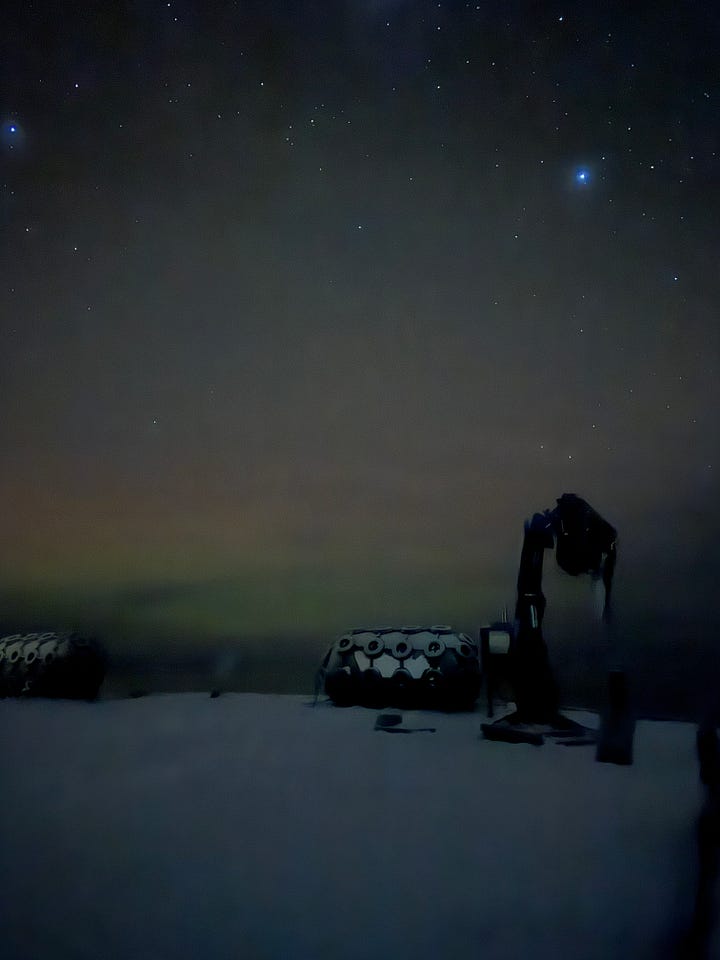
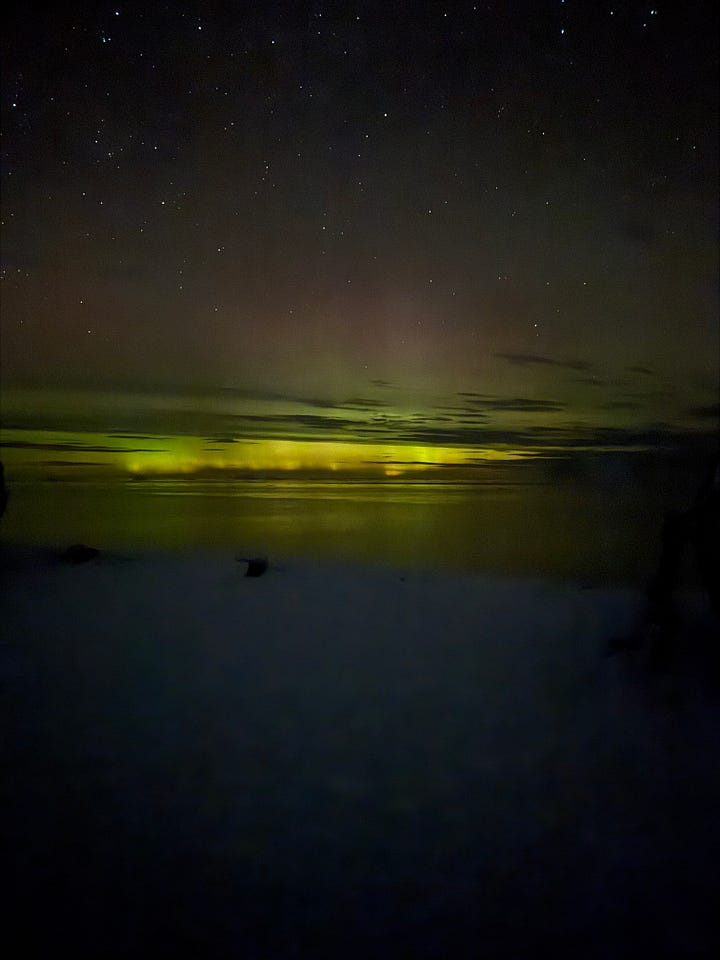
What surprised me most was how much mess 54 people can generate. Floors, laundry, surfaces, the coffee machine. Basically every night was like starting from square one. It was relentless. Still, the real purpose of the shift isn’t cleaning. It’s the rounds.
At midnight, 3am, and 6am, I’d walk the station, checking boilers, alarms, water tanks, and outbuildings. Every building has a series of dials and gauges to check. Most of it is routine, but occasionally when something was wrong, I’d have to wake someone up. But there’s something eerie about being the only person awake and outside, especially on the longer stretch toward South Station, where the Boatshed and Bonner Lab are. That part takes you properly away from the lights, into real darkness. You can hear your breath. Your footsteps. The occasional seal call.
But if you keep going and reach the wharf, it becomes something else entirely. I’d switch off both torches (I always carried two, just in case) and let my eyes adjust to the dark. With hardly any light pollution, the sky was completely awash with stars. The Milky Way was visible to the naked eye. Everything was sharper and brighter than I’ve ever seen at home, even in the countryside. One night I even saw the Southern Lights: a soft green glow curling above the southern horizon. At the wharf, the only sounds were the crack of distant icebergs, water rushing through the rock armour, and the occasional breath of a whale nearby.
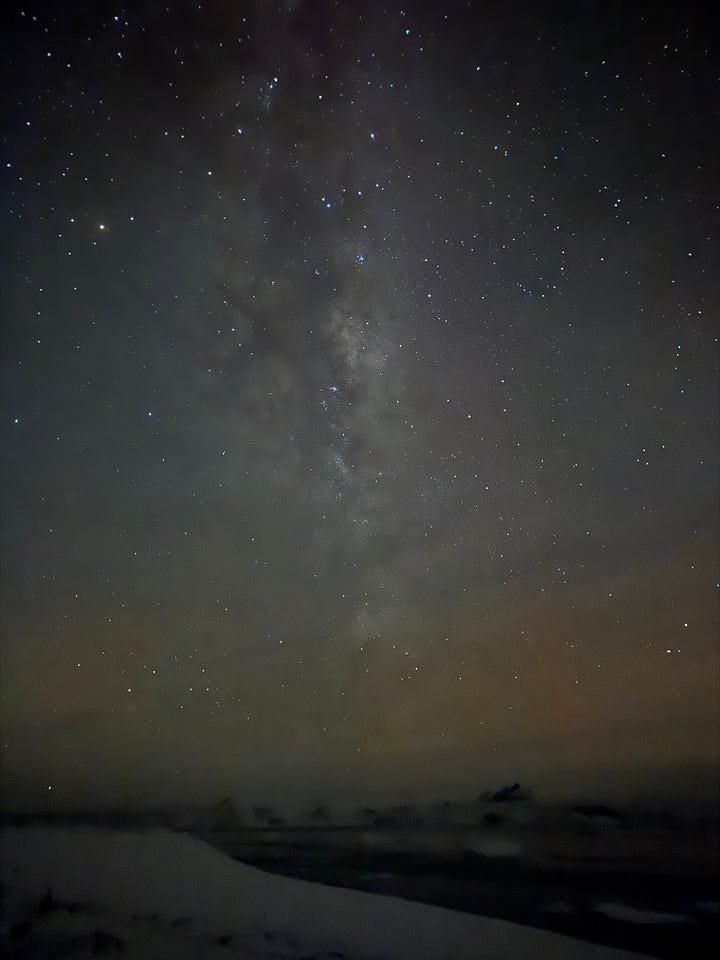


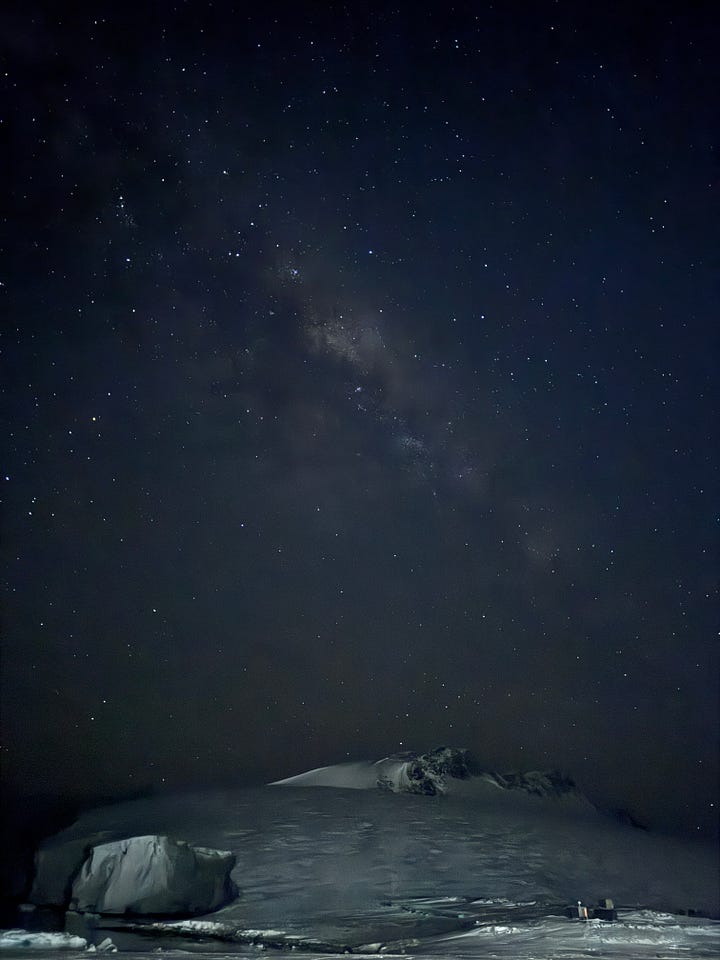
People often imagine that life in Antarctica must be lonely. It’s really not. If anything, you’re rarely alone here. But that week of nights was the closest I’ve come to feeling properly isolated, and honestly, it was brilliant. I only saw that side of the continent because I was alone, and I won’t forget it.
Adjusting back to normal time was tough. Numerous times in the week after nights I woke up in the early hours of the morning, unable to get back to sleep. And since returning to work, so much has changed on the water.
Only a month or so ago, we began seeing sea ice for the first time. At that stage, it was like a fine emulsion in the water, barely visible unless you looked closely. A week or so later, we started seeing ‘pancakes’ of really slushy, freshly formed ice.
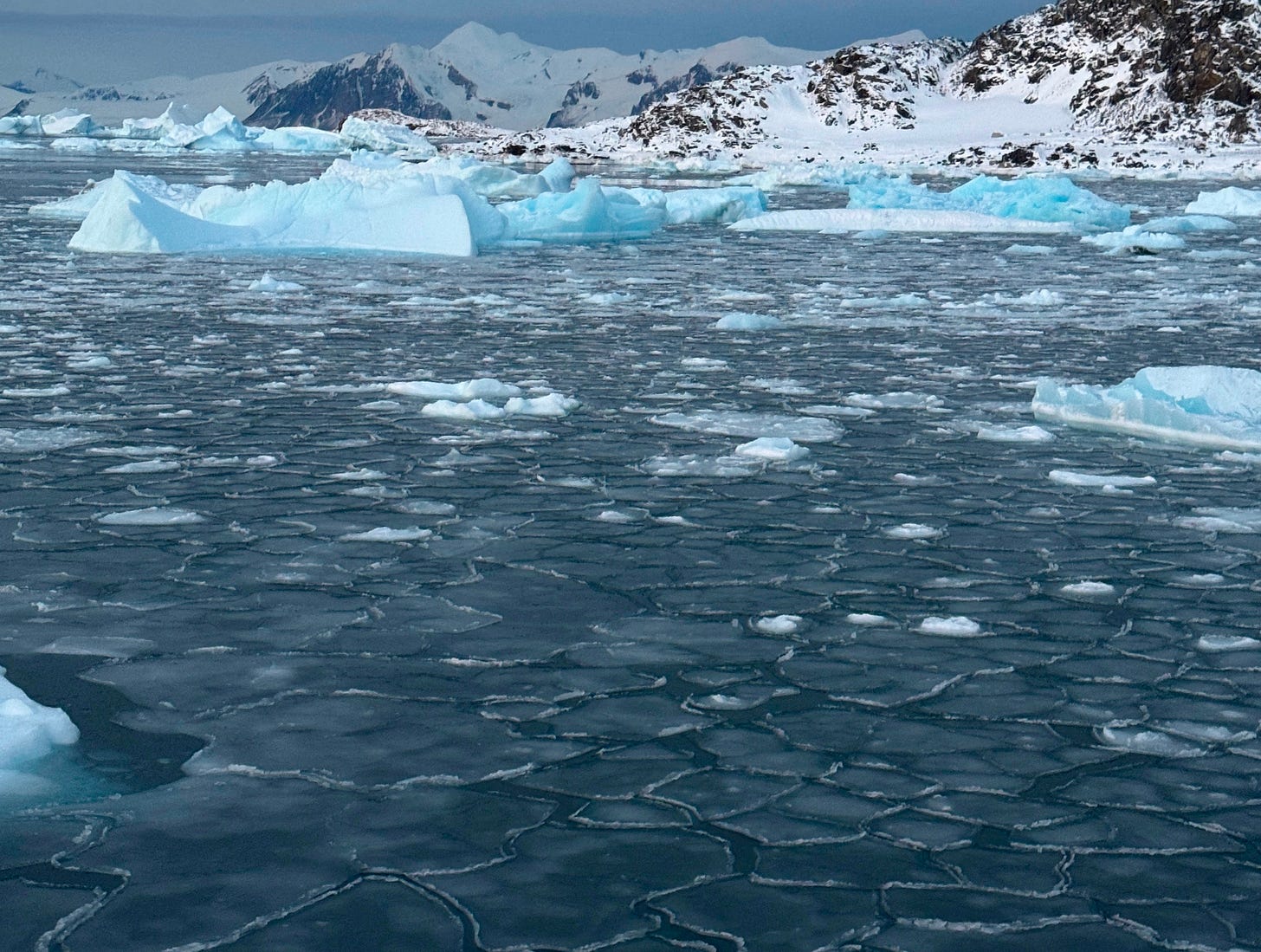
Now, there are huge sheets of ice, many the size of a living room, all across the bay. Many still fail my proprietary ‘stamp test’ (I stamp on it to see if my foot goes through), but some are thick and hard enough to stop the boat. It really is incredible to see, and astonishing how fast things have changed. With the days getting colder, and the sun now no longer rising above the mountains, I expect that we’ll soon have some ice that can be travelled over on skis.

ITV News
ITV News have been on station and the ship over the past week. They’re filming life and work down here, and will be broadcasting a segment at 18:30 BST every day from Monday 9th June until the 18th.




It sounds absolutely wonderful. I used to love night shift patrols but sadly we didn't have the views you have! Loving your "stamp test" btw...😎